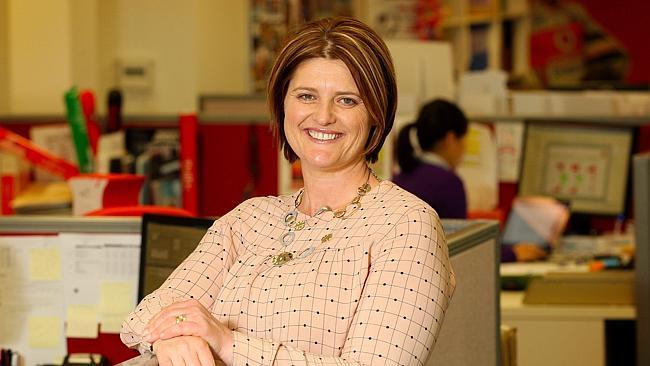Weekend professional: Teamwork and collaboration unlock the power
There are women who apply for jobs if they meet nine of the 10 criteria, but men who tick only three or four boxes.

Collaboration is today’s buzzword, and it generally leads to increased productivity, greater workplace communication and better relationships between staff, team members and leaders.
Teamwork and collaboration will headline this year’s Macquarie University Women, Management and Work conference, and how “the power of inclusive leadership through collaboration” can help business progress.
The university’s school of business executive dean Mark Gabbott says inclusivity is an important theme, whether it be encouraging more women to stand up, or working across generations or international borders.
“We discuss how collaboration will unlock the power of many rather than just the power of one,” Gabbott says. “It’s about nurturing inclusion, creating communities around leadership and teams and organisational culture.”
Commonwealth Bank executive manager of retail sales Lyn McGrath will discuss her experiences creating gender diversity during her executive career, including how she has pushed employment panels to look further afield for female candidates.
“One of the important things for me is looking at the way that we recruit and ensuring we bring people on board who are not what everyone sees as the standard, but also who represents the workforce,” McGrath says. “I challenge people on our panels about the people they’re interviewing and if they say they just can’t find the right women, I’ll say they’re not trying hard enough.”
She knows women apply for jobs if they meet nine of the 10 criteria, and men who tick only three or four of the boxes.
“Women don’t have the confidence to give it a go, and men tend to be black and white and say, ‘Here’s a job that will help my career progression, I’ll give it a go,’ ” McGrath says. She says women also can be more critical of their peers and often do not take other women forward, while men are likelier to support other men without personal criticism.
To combat the lack of support, female mentors are essential.
The bank runs a nine-month leadership course for women to give confidence and build capabilities for them to become senior executives.
While the conference headlines women, Gabbott says it is about ensuring collaboration by engaging men in conversations about leadership styles and communication, and capitalising on strengths.
The conference will discuss gender diversity from men’s and women’s perspectives, and how it can affect workplace expectations.
Gabbott says one of the most important themes is organisational change, challenging workplace myths and entrenched practices, particularly when it comes to gender stereotyping and companies failing to promote skilled women.
“The first step is to call them out and deal with the issues associated with changing,” he says.
“We also need to find new ways to diversify teams.”
Diversification is more than just gender, Gabbott says, and he encourages companies to think and consider what working in a team means in international organisations and across borders.
“Today’s teams can be working around the world. There’s an issue of technology, there’s an issue of cross-cultural communication. There are issues around performance in any team. We’ve shifted from the people around the table team to the people around the world team with different languages, managing different time zones and cultural differences.”
He says communication is important but talking is not the key to improving teamwork or encouraging international co-operation. Overseas work experience is critical, he says, which results in greater cultural understanding. “We spend an awful lot of time to get our students to understand the advantage of learning about different cultures, going overseas and the importance of experience in the global workplace.”
Macquarie University’s Women Management and Work conference is on November 6.


